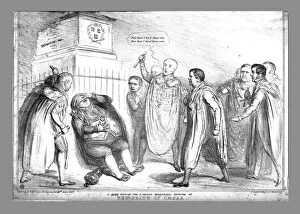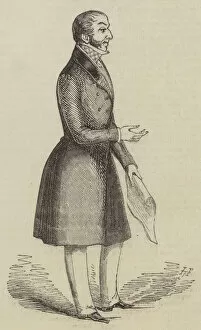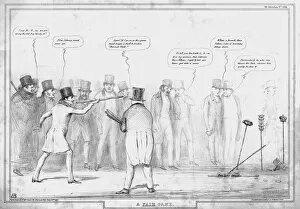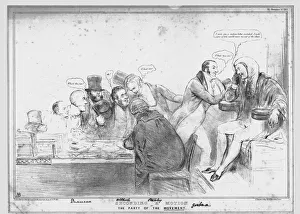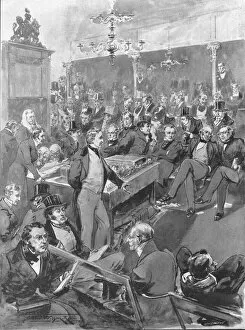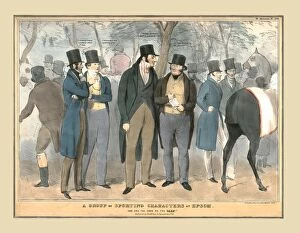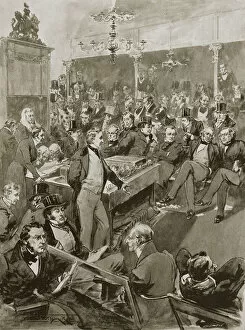Sir James Graham Collection
Sir James Graham was a prominent figure in 19th-century British politics and economics
All Professionally Made to Order for Quick Shipping
Sir James Graham was a prominent figure in 19th-century British politics and economics. He played a crucial role in the debate on the Corn Laws, which ultimately led to their repeal. In an iconic photograph from 1846, Sir Robert Peel announced his conversion to free trade principles during this historic debate in the House of Commons. Graham himself was known for his engraving portraits, capturing the essence of influential figures like Peel. His engravings depicted not only politicians but also showcased his diverse interests and contributions to society. One such engraving portrayed him as the founder of the detective system, highlighting his commitment to law enforcement and justice. Another engraving showed Graham commencing construction on Silloth Railway, demonstrating his dedication to infrastructure development and improving transportation networks. This project aimed to connect Carlisle with Silloth Dock, a new port that he laid the foundation stone for in another engraving. Graham's involvement in various endeavors extended beyond politics and economics. He served as part of The New Ministry's Cabinet, showcasing his influence within government circles. Additionally, he shared economic views with other notable economists like John Doyle who believed that capital determines employment availability. However, it is important not to overlook Graham's lighter side as well. A lithograph titled "A Fair Game" depicted him engaging in recreational activities while "The Reconciliation" captured an emotional scene illustrating human connections amidst political turmoil.

